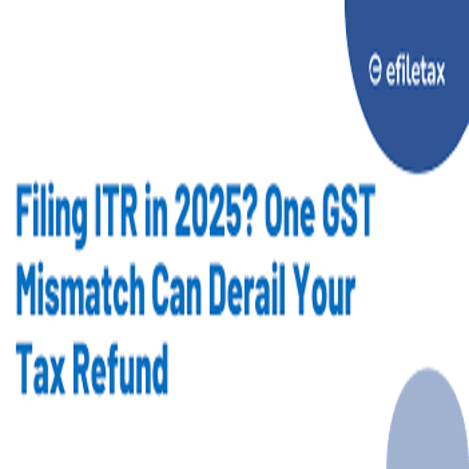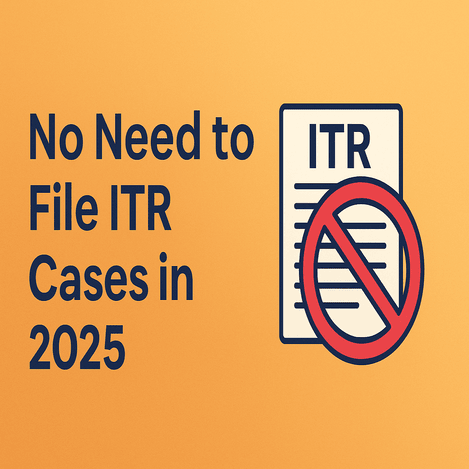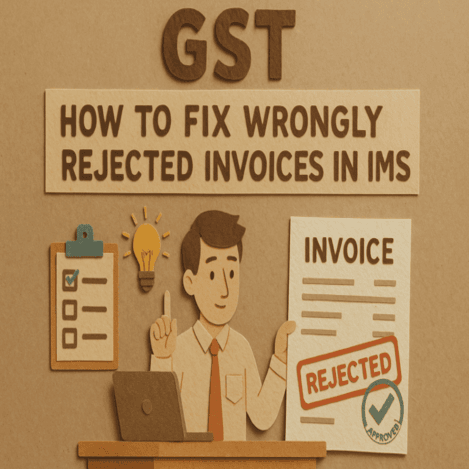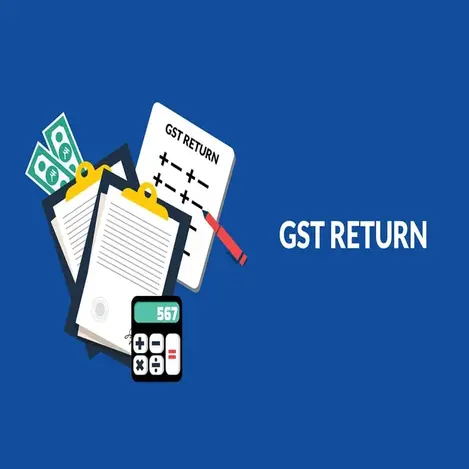Key GST Updates Effective from 1st July 2025
As the new quarter begins, taxpayers must prepare for critical GST compliance reforms taking effect from 1 July 2025. These include non-editable GSTR-3B, a 3-year filing cut-off, and upgraded e-way bill systems, along with the closing window for the GST Amnesty Scheme and GSTR-4 filing grace period.
 1. GSTR-3B Will Become Non-Editable (New Auto-Population Rule)
1. GSTR-3B Will Become Non-Editable (New Auto-Population Rule)
Effective From: Returns for July 2025 period (filed in August 2025)
- GSTR-3B liability values will be auto-populated from GSTR-1, IFF, or GSTR-1A
- These values will be non-editable
- Errors must be corrected via Form GSTR-1A (newly introduced) before filing GSTR-3B


 2. 3-Year Limit for Filing Past GST Returns (No More Backfiling)
2. 3-Year Limit for Filing Past GST Returns (No More Backfiling)
Effective From: 1 August 2025 (for returns due ≥3 years ago)
Returns covered:
| GST Return Type | Blocked From Filing After |
|---|---|
| GSTR-1 / IFF | June 2022 |
| GSTR-3B | June 2022 |
| GSTR-4 | FY 2021–22 |
| GSTR-5 to GSTR-8 | June 2022 |
| GSTR-9 / 9C | FY 2020–21 |


 3. E-Way Bill Portal 2.0 Goes Live (Inter-Operable with 1.0)
3. E-Way Bill Portal 2.0 Goes Live (Inter-Operable with 1.0)
Launch Date: 1 July 2025
New Portal: ewaybill2.gst.gov.in

- Generating or extending E-Way Bills
- Updating vehicle or transporter info
- Creating consolidated E-Way Bills
- API-based access for businesses



 4. GSTR-4 Filing Deadline: 30 June 2025
4. GSTR-4 Filing Deadline: 30 June 2025
- GSTR-4 (for composition taxpayers) for FY 2024–25 must be filed by 30 June 2025
- After 30 June, returns can still be filed but with late fees
- Avoid penalty by filing on or before deadline
 5. GST Amnesty Scheme Ends on 30 June 2025
5. GST Amnesty Scheme Ends on 30 June 2025
If you have old pending GST returns, late fees, or are eligible for reduced penalties, take advantage of the GST Amnesty Scheme before it expires.


 Summary: What You Need To Do Before 1 July 2025
Summary: What You Need To Do Before 1 July 2025
| Task | Deadline | Action |
|---|---|---|
| File GSTR-4 for FY 2024–25 | 30 June 2025 | Avoid late fees |
| Avail GST Amnesty Scheme | 30 June 2025 | File pending returns with reduced late fees |
| File returns older than 3 years | 31 July 2025 | Prevent permanent block from 1 August |
| Prepare for non-editable GSTR-3B | From 1 July 2025 | Start using GSTR-1A for corrections |
| Update E-Way Bill APIs | From 1 July 2025 | Use new portal for improved functionality |
 GST DUE DATES FOR JULY 2025
GST DUE DATES FOR JULY 2025
 Due Date Due Date |
 Form Form |
 Description Description |
|---|---|---|
| 10 July | GSTR‑7 | TDS return under GST |
| 10 July | GSTR‑8 | TCS return by e-commerce operators |
| 11 July | GSTR‑1 | Monthly return for outward supplies (turnover > ₹5 Cr) |
| 13 July | GSTR‑1 & GSTR-5 |
QRMP scheme (for June Qtr) |
| 13 July | GSTR‑6 | GSTR‑3B |
| 20 July | GSTR‑3B & GSTR-5A |
Monthly return (taxpayers > ₹5 Cr or opted for monthly) |
| 22 July | GSTR‑3B | Quarterly filers (QRMP) for Group A states (Chhattisgarh, MP, Gujarat, Maharashtra, Karnataka, Goa, Kerala, TN, Telangana, Andhra Pradesh, etc.) |
| 24 July | GSTR‑3B | Quarterly filers (QRMP) for Group B states (Delhi, Punjab, Haryana, HP, JK, UP, Uttarakhand, WB, NE states, Bihar, Jharkhand, Rajasthan) |
| 30 July | ITC-04 | Job work declaration for April–June 2025 (if applicable) |



 Wrong Filing in GSTR-1 Auto-Populates Incorrect GSTR-3B
Wrong Filing in GSTR-1 Auto-Populates Incorrect GSTR-3B Non-Reversal of ITC under Rule 37A – Supplier Didn’t Pay Tax
Non-Reversal of ITC under Rule 37A – Supplier Didn’t Pay Tax No Reconciliation with GSTR-2B
No Reconciliation with GSTR-2B Purchase from Cancelled GSTINs
Purchase from Cancelled GSTINs ITC Reversal for Exempt Supplies Not Done (Rule 42/43)
ITC Reversal for Exempt Supplies Not Done (Rule 42/43) Miscellaneous Incomes Not Reported
Miscellaneous Incomes Not Reported No GST Paid on Advance Received
No GST Paid on Advance Received Incorrect Valuation of Related Party Transactions
Incorrect Valuation of Related Party Transactions Late GSTR-1 Filing – No Late Fee, But Notice Still Possible
Late GSTR-1 Filing – No Late Fee, But Notice Still Possible Wrong HSN/SAC Code Reporting
Wrong HSN/SAC Code Reporting
 In this case, SBI will deduct tax, and Mr. Sharma is exempt from filing ITR.
In this case, SBI will deduct tax, and Mr. Sharma is exempt from filing ITR.

 Conclusion
Conclusion